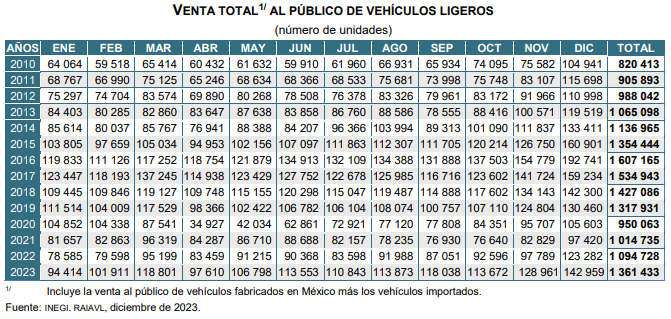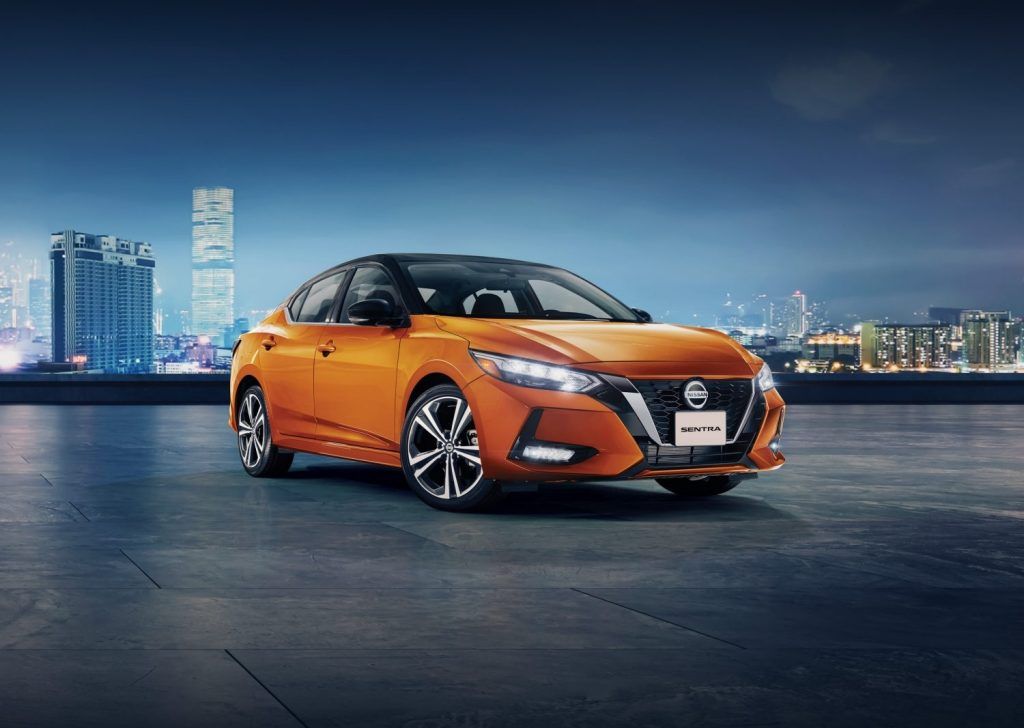Sales of new light vehicles (cars and light trucks) in Mexico totaled 1,361,433 units in 2023, an increase of 24.4% year-over-year.
Brands with the highest sales volumes include Nissan, Chevrolet, Volkswagen, Toyota, Kia, Mazda, Chrysler, MG, Hyundai and Ford.
After reaching a record in 2016, totaling 1 million 607,165 units, Mexico’s domestic sales plummeted to 950,063 new light vehicles in 2020, the year with the greatest havoc from the Covid-19 pandemic.

Moreover, in the following two years the partial recovery was weak, with 1,094,728 units in 2021 and 1,094,728 units in 2022, according to Inegi data.
In Mexico, the sale of cars and light trucks is influenced by several factors, such as the economy, model supply, interest rates, inflation, government regulations, and consumer preferences.
The most popular brands in Mexico tend to be those that offer affordable, fuel-efficient models with features tailored to local needs.
Cars and light trucks
The best-selling models were Nissan’s Versa, Nissan’s NP300, Chevrolet’s Aveo, Kia’s Rio, Nissan’s March and MG’s MG5.
There are five main subsectors in Mexico’s automotive industry: original equipment parts, aftermarket parts, electric and hybrid vehicle parts, specialty equipment, and remanufactured products.
Of these subsectors, the U.S. Department of Commerce sees great opportunities in original equipment parts, aftermarket parts, and electric vehicle parts.
Trend
The electric vehicle market is evolving rapidly in Mexico as automakers have announced ambitious strategic goals to transition their offerings from gasoline to electric vehicles.
These plans also include reducing their own carbon footprint and that of their tier suppliers.
While the electric and hybrid vehicle market totaled only 51,065 units in 2022, this represented 8.5% growth compared to 2021.
Hybrid vehicles accounted for 3.75% of the total electric vehicle market, followed by electric vehicles (0.51%) and plug-in hybrid vehicles (0.42 percent).
In Mexico, pickup trucks and SUVs tend to be in significant demand due to the preference for larger and more versatile vehicles.

